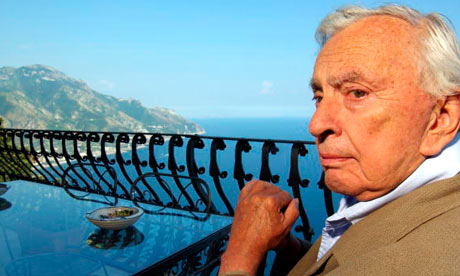
Everybody says they're only doing it for the money. And everybody lies.
So when Gore Vidal described himself as a pirate adventurer when he took to writing scripts – first for television, and then Hollywood – he was being slightly economical with the truth about his home economics. Maybe, after making such a splash debut in the literary world, he felt that he needed to nod respectfully to Faulkner and Scott Fitzgerald and, with no drink problem to blame, he needed a new excuse.
But he didn't need to continue to write plays and screenplays, and yet his career as a dramatist spanned over 35 years. There was more than an overdraft to motivate him. I would guess that he discovered that writers gain by stretching themselves to take on other forms, that it can be invigorating and renewing (as well as, sometimes, exasperating).
Novel writing is not only a lonely business – two or three years' work culminates in a 90-minute lunch with your editor – but it also places the entire burden of examination on the self. It's all your own work – editors may tweak occasionally (Carvers are exceptional) but they certainly don't contribute ideas and they never roll up their sleeves and start typing.
But there is a wonderful release – as I am sure Vidal discovered – to be had when discussing and plotting and planning a movie within a group. Suddenly you are not alone, suddenly it isn't all you. And there's more: somebody in the room suggests a re-route for your plot. For a moment, like any good writer, you reject it out of hand. And then you start to see how it improves things, opens up a different, a wider, vista on the characters. And soon, you are wholeheartedly embracing it (the final stage involves telling everyone it was your idea). In other words, you learn from the co-operative side of movie-writing.
But maybe it is this which gives the movies (and let's not even mention television) its slightly soiled name among the literary few. It's as though suddenly that politely married couple have become swingers, are attending orgies and showing you photographs of them. In short, they're no longer doing it alone. And surely that can't be the real thing?
I don't know if it is "real", but it certainly is instructive. Screen drama has so much to teach novelists about plotting. Ask me what the greatest influence on the modern English-language novel is, and I won't mention Ulysses (a wordy, self-referential cul-de-sac) and I won't mention Lady Chatterley (honest but snobbish), I will say one word: screen. First movies, then television and finally the internet have changed how novels are being written. They have to be written differently now because of how they are read by people who regularly absorb most of their narrative from the screen. And I have a feeling that Vidal was an early adopter here – writing for television in its beginnings and then moving across to Hollywood.
Screenplays teach you about plotting, about just how far you can push a story and – conversely – how much you need to tie it all up. Movies demand narrative resolution and resolution always makes a story better. Sure, a literary novel can end with characters staring moodily into the distance, the chaos still tangling and re-tangling around them. But think of your top 10 favourite novels and I bet that nine of them (at least) have properly and satisfyingly resolved endings.
Look at Vidal's output across his lifetime and his novels, by and large, got longer. Maybe this is because he had learned so much about handling plot and how to then bring all the strands back to a conclusion. And when he started acting in films as well, then he finally gave it his seal of approval.
And yet still it will be the novels and the essays for which he is remembered, that are considered his landmark achievements. And in all honesty, they probably are – his films and plays never had quite the range or ambition. But the question to ask is: could he have written the novels (or even come up with all those one-liners), if he had never signed a Hollywood contract?

